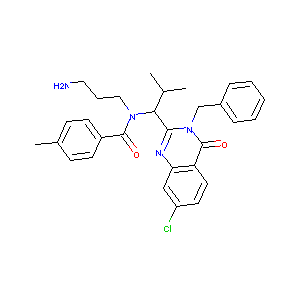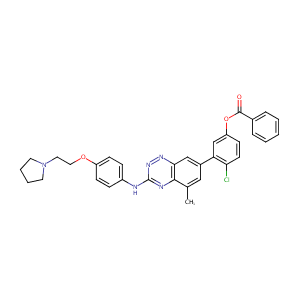| 1 |
Recurrent recessive mutation in deoxyguanosine kinase causes idiopathic noncirrhotic portal hypertension.Hepatology. 2016 Jun;63(6):1977-86. doi: 10.1002/hep.28499. Epub 2016 Mar 31.
|
| 2 |
ClinicalTrials.gov (NCT00095628) SB-715992 in Treating Patients With Recurrent or Metastatic Head and Neck Cancer. U.S. National Institutes of Health.
|
| 3 |
ClinicalTrials.gov (NCT00509548) Open-Label, Pilot Study of TG100801 in Patients With Choroidal Neovascularization Due to AMD. U.S. National Institutes of Health.
|
| 4 |
Initial testing (stage 1) of the kinesin spindle protein inhibitor ispinesib by the pediatric preclinical testing program. Pediatr Blood Cancer. 2009 Dec 15;53(7):1255-63.
|
| 5 |
Topical administration of a multi-targeted kinase inhibitor suppresses choroidal neovascularization and retinal edema. J Cell Physiol. 2008 Jul;216(1):29-37.
|
|
|
|
|
|
|


